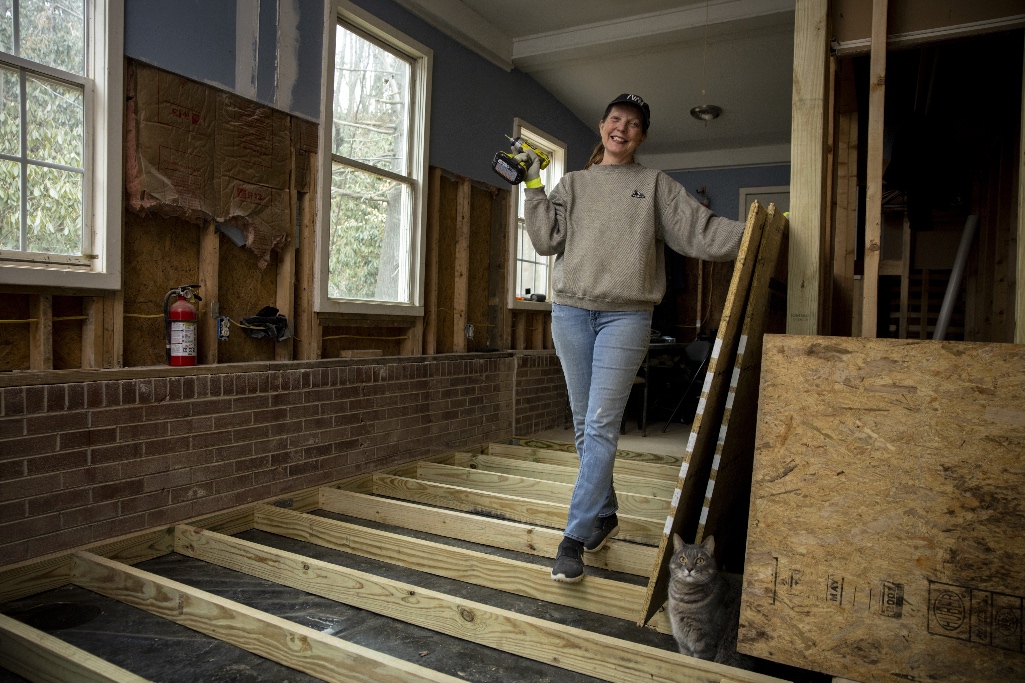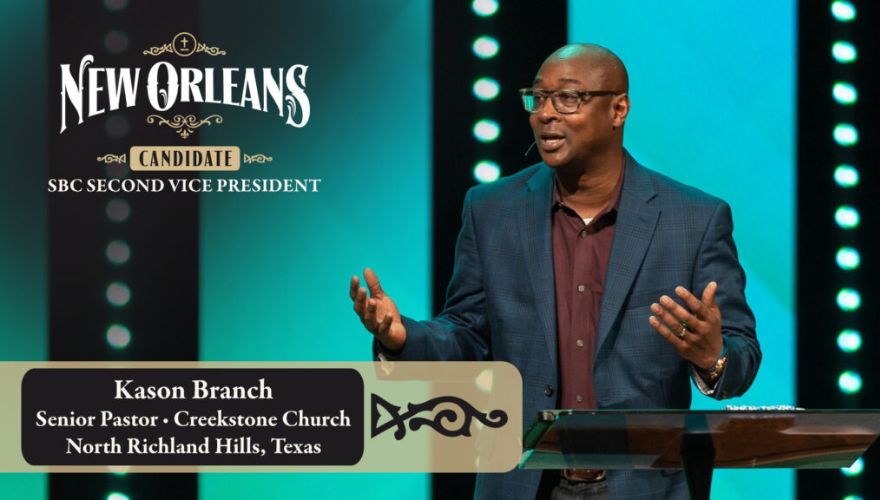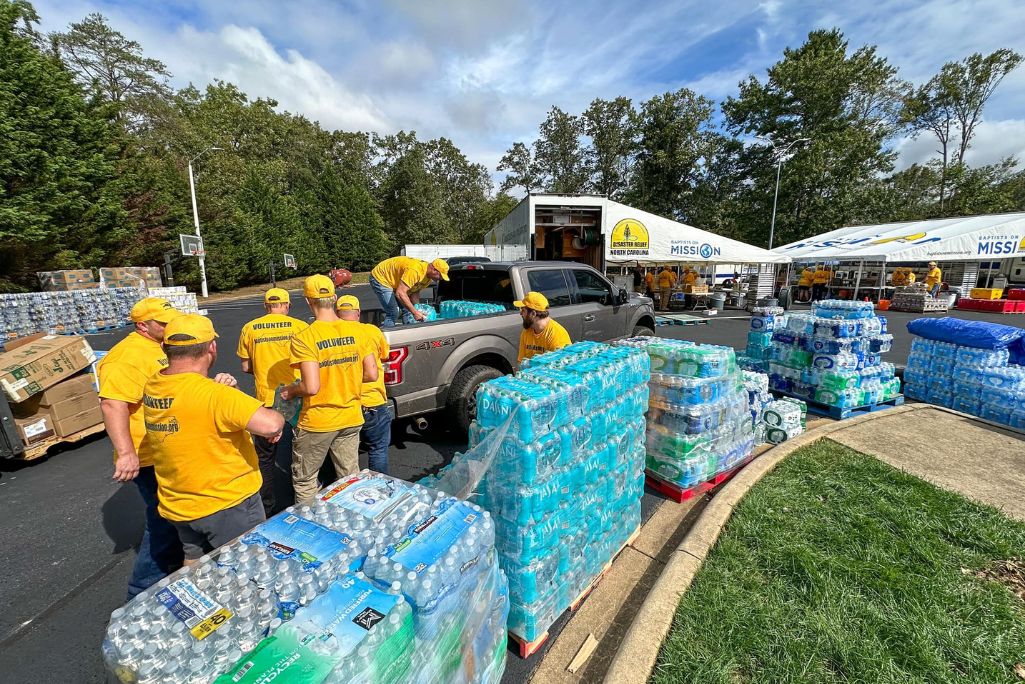
A group of Charlotte-area pastors and two others from New York helped minister to residents of western North Carolina by delivering water and other supplies in the aftermath of Hurricane Helene.
ARDEN, N.C. — On the Monday after Hurricane Helene wreaked havoc on the southeastern United States, Jordon Willard and a group of about a dozen Charlotte-area pastors were supposed to be on their way to New York City to discuss church planting and partnerships with some pastors there.
But after seeing the devastation and destruction inflicted by Helene, Willard and his colleagues found themselves headed to western North Carolina instead.
“After seeing everything through news reports and on social media, we thought it was best to redirect our efforts there,” said Willard, who serves as senior pastor of First Baptist Church of Weddington, N.C.
Once they informed their New York counterparts of their need to reschedule, two of the pastors from New York drove through the night to join them in the relief efforts.
When Caleb Bunch, pastor of Levittown Baptist Church in Levittown, N.Y., received the call that the North Carolina pastors would be unable to make it for their previously scheduled meeting, he was unaware of the extent of Helene’s destruction. It didn’t take him long, however, to discover that the need was so great. Bunch then called his associate pastor, Dillon McKeon, and within an hour they were on the road to North Carolina.
Due to road closures, the journey took over 15 hours, but once they made it to North Carolina, Bunch and McKeon joined in with the N.C. pastors delivering water, food and other assistance where they could.
The pastors all met at Biltmore Church’s campus in Arden, N.C., where N.C. Baptists on Mission had set up feeding and recovery operations. The church was also serving as a drive-thru distribution site where area residents could get meals, water and ice. From there, the team was able to take supplies into smaller communities that had not been reached yet and were just coming to terms with the damage that Hurricane Helene had brought.
The larger team broke into small groups and ventured into towns like Swannanoa, Black Mountain and other areas adjacent to rivers where Bunch said “the amount of destruction was absolutely unparalleled.”
Homes were lost, cars were submerged in rivers and roads were impassable due to mudslides or downed trees.
“The grief and the shock and all of that was heavy and it was fresh,” Willard said. “It was just like a collision of so many different emotions with everybody just in action serving in the midst of just unspeakable pain and suffering.”
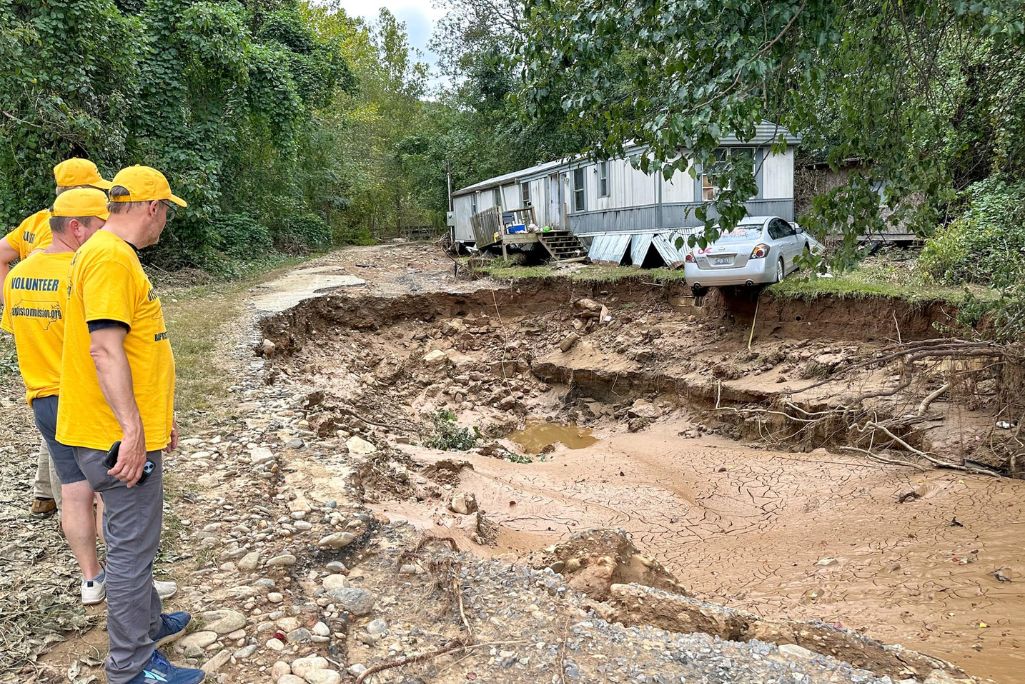
Many residents were stranded with no access to food, water or other necessities. In some cases, people had not seen anyone from the outside world for days, even four days after the storm. Many volunteers like Willard and Bunch tried driving to reach people in the mountains, but they often found themselves traveling on foot to reach people stuck in their homes.
“Several of those people had told us in tears, ‘No one has come here,’ and they were overjoyed that somebody cared to go see them,” Bunch said. “We were able to explain to them that the Lord cared for them and that our goal was to point them to Him.”
The pastors visited several churches in the region as part of their efforts. Many of those churches have become central hubs of ministry in the affected areas, offering much-needed support and supplies to their communities.
Bunch said they witnessed firsthand the dedication of local church leaders, who have taken on the heavy lifting of recovery efforts.
“It was a true blessing on our part, that we were able to take part in the work of the Lord there,” Bunch said. “We were able to see the best of Southern Baptists there in North Carolina. We were able to see the best of their efforts serving the kingdom.”
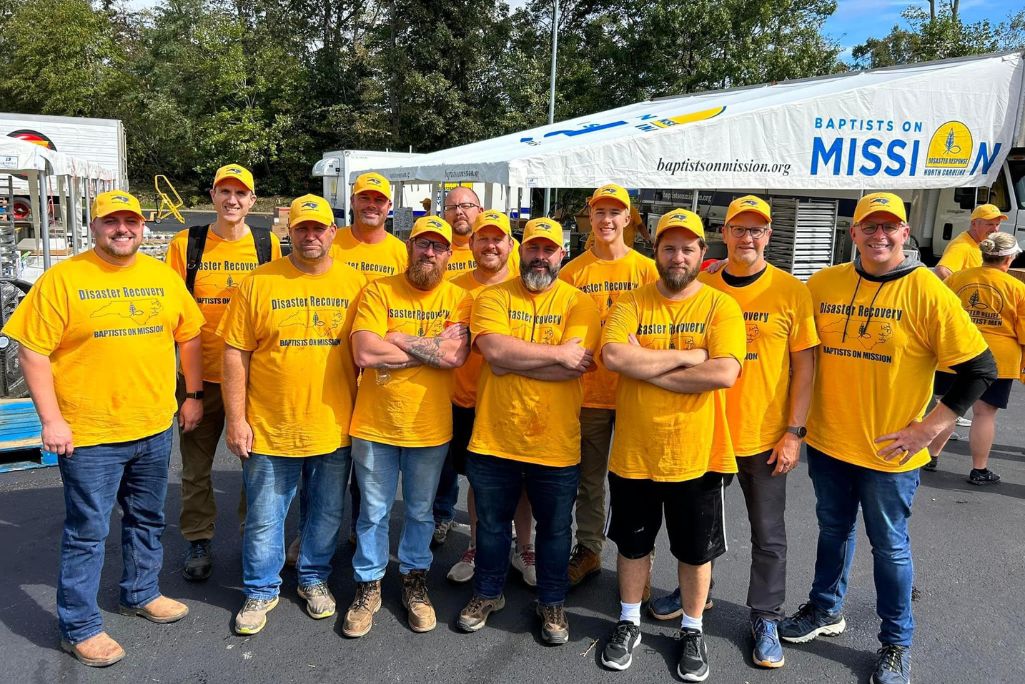
First Baptist Church of Swannanoa is one such ministry hub. As Willard’s team worked in Swannanoa and witnessed houses displaced by floodwaters and roads completely washed out, First Baptist Church of Swannanoa stood untouched, elevated on a hill. There, Willard met with Pastor Jeff Dowdy, who was already working to organize First Baptist Church of Swannanoa as a supply center, though they didn’t have many supplies to speak of.
By Tuesday morning (Oct. 1), the church’s gymnasium was nearly filled with essential supplies — everything from bottled water to baby formula and diapers. The church, which had started out with just a few bottles of water, was overwhelmed with donations and volunteers pouring in.
“They had no idea where the supplies were going to come from, ” Willard said, “It was truly loaves and fishes.”
Local church members are among those showing up supplying these needs in the midst of their own personal tragedies. In many towns like Swannanoa, churches have been at the forefront of relief efforts, “but the level of intensity that they’re serving with is simply unsustainable,” Willard said.
Prayers and financial contributions remain vital, but as relief and recovery efforts continue, the real need is for ongoing, committed volunteers who can serve in the months to come.
“Everybody’s kind of eager to go there and serve right now, but we should really be thinking about next week and the week after that and the month after that and the month after that,” Willard said. “So that they can have the impact that they need to have for the long haul.”
To volunteer, make a donation or learn more about N.C. Baptists on Mission’s response to Hurricane Helene, visit baptistsonmission.org/hurricane-helene. Disaster response is one of 19 different ministries of N.C. Baptists on Mission, which is supported by the North Carolina Missions Offering.

